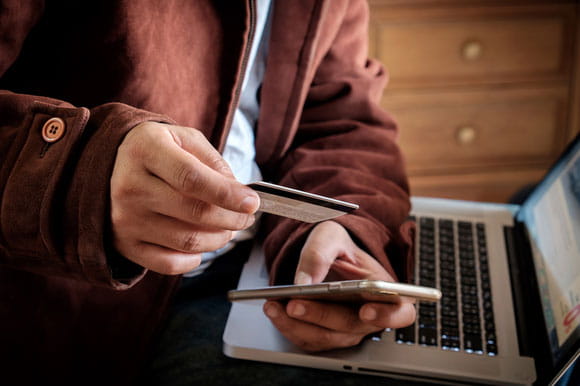Financial Fraud Is Growing in the Pandemic—Here’s How You Can Protect Yourself

In the midst of a global pandemic, it’s hard to believe that we would have anything else to worry about—but unfortunately, that’s simply not the case.
$145 million―that’s how much Americans have lost to COVID-19-related scams this year. According to the Federal Trade Commission, that amount stems from the 205,000 reports of financial fraud linked to the pandemic, at an average loss of $300. Since March 2020, fraudsters have taken advantage of the unique situation by intercepting financial support payments, conducting unemployment identity fraud, and stealing people’s personal information in order to access their accounts.
To help you avoid joining the ranks of those who have been compromised, we’ve gathered some insights on what pandemic scams to look out for, and how to get ahead of them.
How Has the Pandemic Changed Fraud?
The COVID-19 pandemic has offered a proverbial playground to bad actors in a number of ways. First, the levels of fear caused by the disease have made it easy for criminals to prey on people by offering fraudulent solutions such as test kits and immunizations. Second, cybercrime is also on the rise as unprecedented numbers of people have had to work from home on sometimes insecure networks, making their personal and corporate information more accessible.
Lastly, heightened levels of unemployment paired with government payments to individuals and businesses have presented the perfect opportunity for criminals to capitalize on financial instability. With tactics such as identity fraud, they are submitting false claims and intercepting payments to access these vital funds.
As the situation in the US continues to evolve, so is the effectiveness of these attacks. In just three months between June and September 2020, the amount of money lost to pandemic-related scams escalated $77 million. With so much on the line, it’s important that you know how to spot a scam early.

What Do These Scams Look Like in Practice?
Scams come in all shapes and sizes, and people looking to take advantage of the vulnerable or the poorly notified public utilize different methods in order to grab attention and collect sensitive information. These approaches include:
- Phone calls stipulating that you have to pay a fee in order to receive your stimulus payment, where criminals steal your payment information
- Text messages seemingly from health authorities like the Red Cross offering to sell medical equipment
- Emails that claim to be from bodies like the Center for Disease control with corrupt links that deploy malware into your device and steal sensitive information
- Communications from the IRS or other government agencies asking for information they should already have about you
- Websites that are made to look like your bank or a government agency, but are glitchy and slow, with confusing links and incomplete images
Regardless of the format, and who the communication appears to be from, it’s vital to always double check their accuracy by researching the content or contacting the organization in question to confirm that the message is from them.
How to Protect Yourself from Fraud
Financial fraud isn’t always easy to pinpoint—and it gets much harder during a global pandemic. It can be hard to identify what is real from what is simply a scam trying to catch you unaware. The best way spot fraud is to read things slowly and think logically about what the person or message is asking you to do.
- Remember to always take your time. No government body or health authority will have you rushing to respond or payment, and they certainly won’t threaten you either. In fact, if you are feeling rushed or pressured, that is a key indicator you may be getting asked to do something from a fraudulent source, and a reason to get off the phone or delete the message.
- For email communications asking you to click on a link, make sure you hover over the link to ensure that it is legitimate. You likely won’t be able to do this on your phone or tablet, so wait until you are on your laptop so that you can check.
- Whenever possible, report the incident to the respective authorities—even if that’s the agency or business that the criminal was representing. This will help you protect others from falling for the attack.
Fraud strategies are something that are constantly evolving to meet the situations that people are experiencing. Staying informed and vigilant are some great ways to combat these attacks, protect your funds, and put your energy towards planning your future.
At Citadel Credit Union, we want you to be as safe as possible with your information and your money. Protect yourself with identity theft detection and recovery services.
